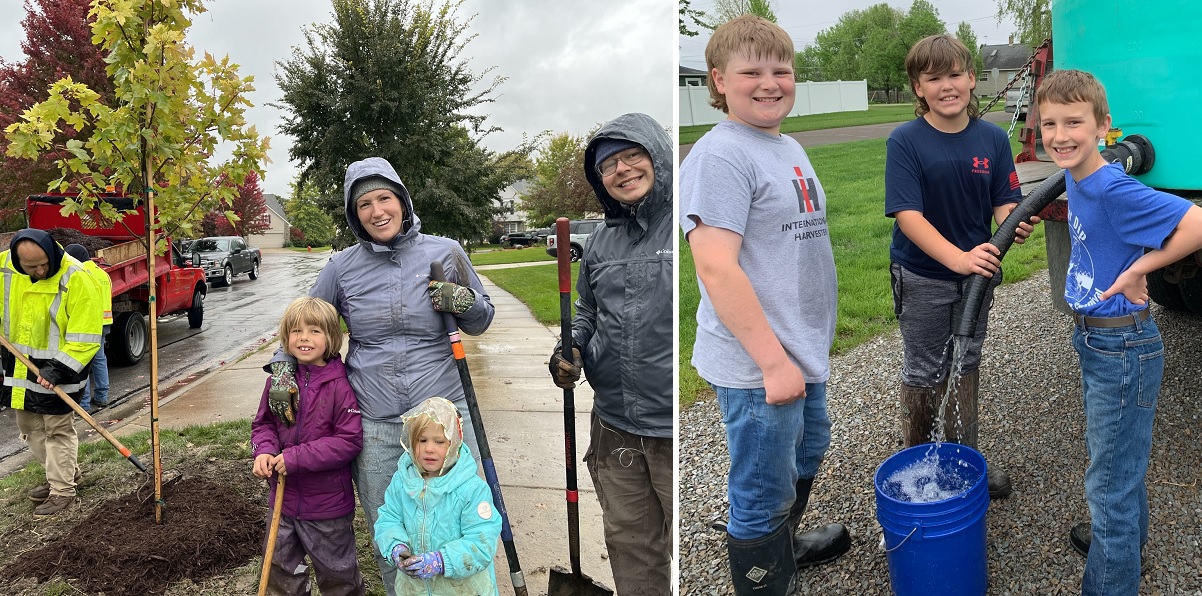The volunteer crew was in place, ready to dig holes that would house a series of six- to 10-foot trees—but the digging equipment was nowhere to be found.
The team was assembled in the cherry district of northern Michigan, near Traverse City, known as the cherry capital of the world. A public tree planting event was to take place the next day, but the volunteers were now faced with the challenge of tracking down suitable equipment at the last minute.
Suddenly, a distant rumbling was heard. As it got louder and louder, tractor after tractor came into view. The cherry farmers were driving in with their diggers to save the day.
“This story is dear to my heart,” reflects Melinda Jones, executive director and a founding board member of ReLeaf Michigan, the not-for-profit leading the tree-planting initiative.
She fondly remembers the parade of cherry farmers and recalls the joy of volunteers young and old planting trees the next day, all in the spirit of improving their small community.
“Children showed up with their own little pails and their shovels, and they’re right in there, filling the dirt back into the hole. Everyone had the best time,” she says.

ReLeaf Michigan has led tree-related initiatives and educational programming throughout the state since 1988. Based in Ann Arbor in southeast Michigan, near Lake Erie, the organization’s staff and most of the board are made up of tree professionals, such as arborists and foresters. ReLeaf Michigan’s primary focus is collaborating with communities to plant trees on public land, helping to increase the overall tree canopy.
“We consider ourselves Michigan’s resource for everything related to trees,” Jones adds.
To date, the not-for-profit has worked with more than 700 communities and planted about 33,500 trees—not seedlings, but caliper trees that are already about five to 10 feet tall, selected to “have a more immediate effect on the community,” Jones explains.
“Throughout the whole U.S., for every four trees being removed, only one is being replanted,” she notes. “A continual, ongoing project to plant trees is needed, especially in Michigan. We’re one of the top 23 states that continue to lose tree canopy.”
The tree-planting initiatives in the community are collaborative efforts. ReLeaf covers the costs of the trees, delivery and watering supplies, and delivers education to the community on how to maintain the trees and expand the canopy on their own properties.












